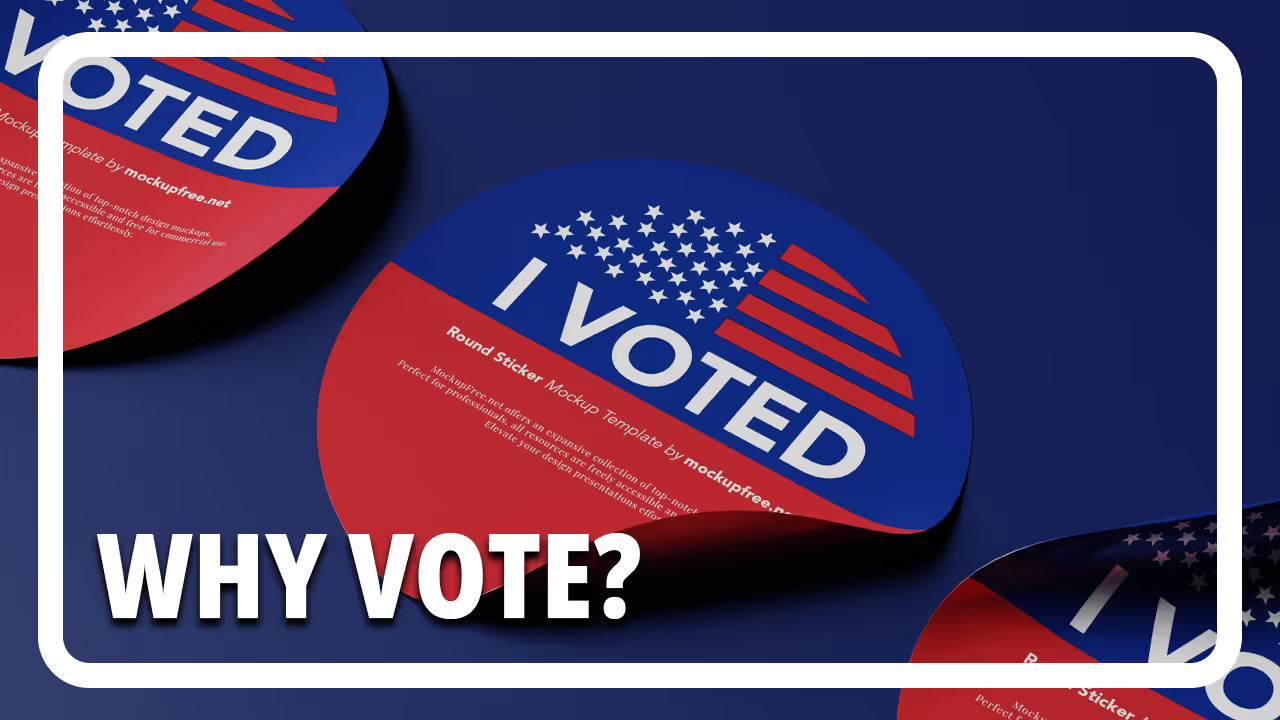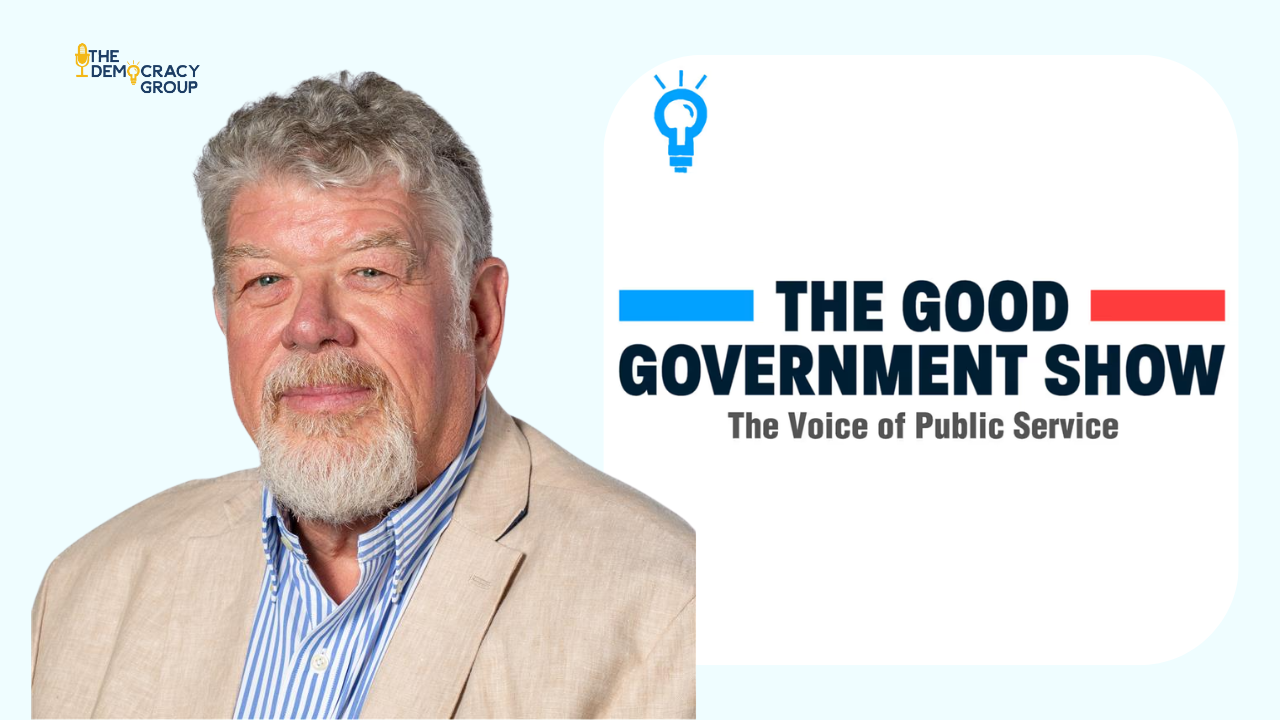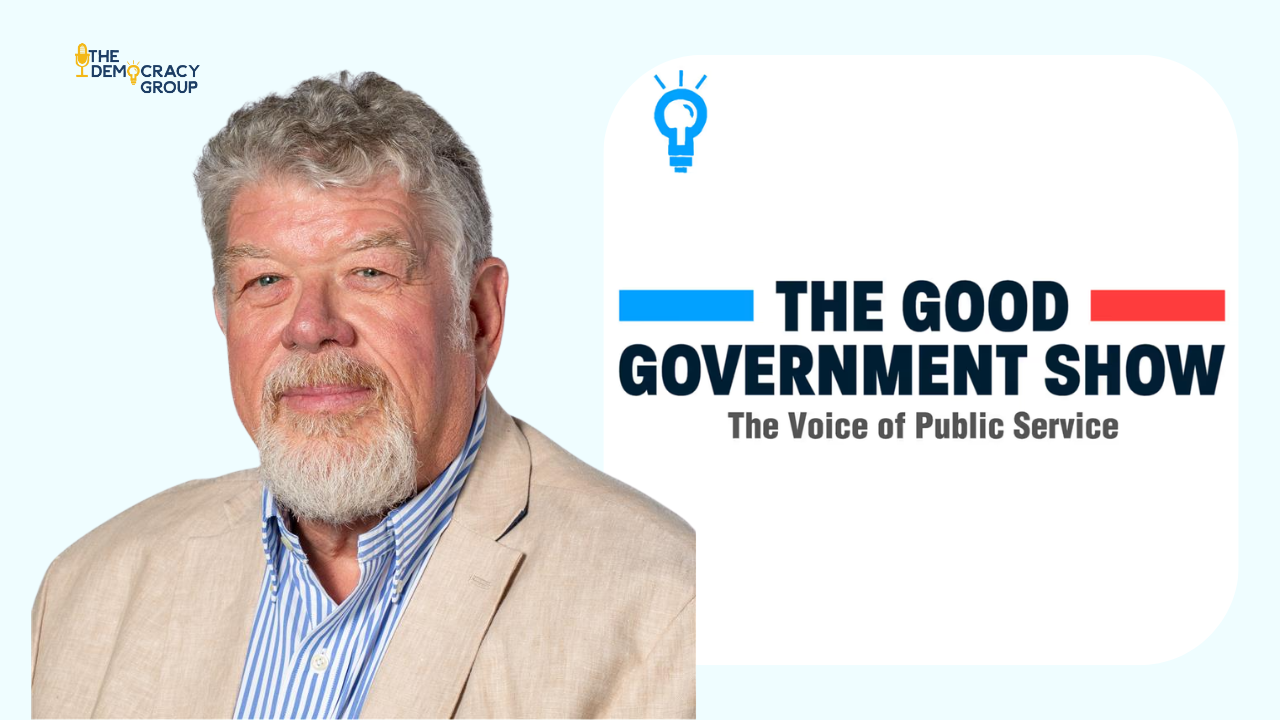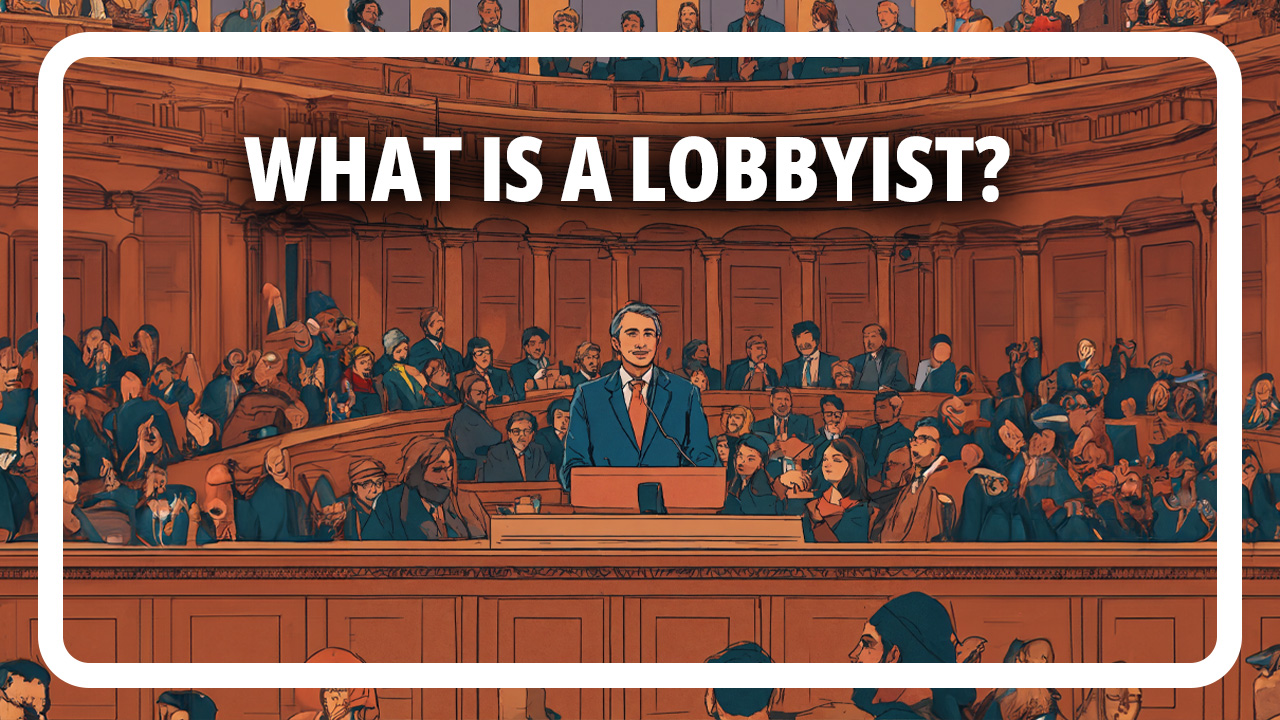
It’s easy to feel like your vote doesn’t matter. Between the noise of national headlines, the frustration with gridlocked politics, and the constant tug-of-war between extremes, many Americans have started to tune out. Maybe you’ve even caught yourself wondering, What’s the point?
But here’s the truth: voting is still one of the most powerful tools you have to shape the world around you. It’s not just about choosing a president every four years. It’s about deciding who funds your schools, how your community is policed, what rights are protected—or taken away—and who gets a seat at the table when decisions are made.
And when you don’t vote? You’re giving that power away. To someone who may not share your values. To a system that assumes your silence means consent.
In this article, we’re cutting through the noise and getting real about what voting actually does—how it protects your rights, amplifies your voice, and keeps democracy alive and evolving. You’ll hear from leading voices across the voting rights space—activists, scholars, and everyday citizens—who make a compelling case for why your vote isn’t just important…it’s essential.
Because the truth is: democracy only works if we do. And your voice? It matters more than you think.
Let’s explore why.
Related: If you teach political science, our free syllabus guide curates the best democracy podcasts on topics just like this—ready to assign.
Subscribe to receive a biweekly collection of the hottest podcast episodes from the network, upcoming special events, expert features, and news from your favorite shows.
Subscribe to our NewsletterThere’s no doubt that at some point, you’ve heard the answer to this question sound something like EJ Dionne’s sentiments. Dionne is the author of 100% Democracy: The Case for Universal Voting, a senior fellow at the Brookings Institution, a syndicated columnist for The Washington Post, a university professor at Georgetown University, and a visiting professor at Harvard University.
E.J. Dionne:
“Saying that everyone has a civic duty to vote as well as the right to vote is a way of saying that everybody should be invited into our experiment in self-government. We expect everyone to show up because we want everyone to show up.”
Listen to the full episode on Democracy Works: Can American democracy have nice things?
But what is the real importance to you, the individual reading this? Let’s hear from Hannah Fried, executive director of All Voting is Local, as she explains how exercising our right to vote becomes the foundation for all our other rights.
Hannah Fried:
“I think that everybody—every person—should agree that eligible Americans should make their voices heard so that the playing field is even, so that everyone is equally able to make their voices heard, cast their ballot for the candidate of their choice, and move this country in the direction that we collectively—all of us, equally—want to go in.
The focus on voting is because it is the underpinning of all of our other rights. I mean, if you cannot cast a ballot in an election, how else can you express yourself? It is the starting place for all these other rights, which is why I think the denial of the right to vote is so insidious—so deeply troubling. There are whole communities of people, whether it's people with a criminal conviction or those who aren’t able to get a voter ID, who are just... blocked from that. I'm hard-pressed to think of anything worse, frankly.”
Listen to the full episode on The Great Battlefield: Protecting The Right to Vote with Hannah Fried of All Voting is Local
Sometimes, the rights being voted on hit very close to home. Without our vote, we’re not able to speak up for the matters that mean the most to us. Seth Flaxman, CEO and co-founder of Democracy Works (not to be confused with the Democracy Works podcast), shares how the Marriage Equality Amendment in California became a turning point for him—a moment when he realized just how important it was for people to vote.
Seth Flaxman:
“That was a scary election for me personally, and I was like—votes can happen that take your rights away.
I wasn't married to my husband yet, but we were together at the time, and it was a sign for me of just how fragile a democracy can be. People said it was a historically high turnout—60%. And I was like, really? That doesn’t seem so great to me.
If someone’s going to take my rights away, I at least want there to be 80% turnout. I want to make sure this is a really legitimate election that represents everyone’s perspectives.”
Listen to the full episode on How Do We Fix it?: Record High Voter Turnout? Seth Flaxman
Although most voters only pay attention to the presidential general election, our votes often have more impact in smaller, local elections that take place at different times throughout the year. Seth Flaxman’s example underscores this point.
As Nimit Sawhney, CEO of Voatz, points out, local elections are often even more important—yet suffer from staggeringly low turnout.
Nimit Sawhney:
“The municipal election turnout is pretty bad. You look at the major cities around the U.S., and in the mayoral elections, you have 10% or fewer people voting—and arguably, those impact our daily lives more than voting for governor or president.”
Listen to the full episode on New Faces of Democracy: Nimit Sawhney: Voatz Mobile Voting App
And for those who focus primarily on general elections, voting in the primaries that happen beforehand is actually even more important, as Jocelyn Bucaro of the Mobile Voting Project explains.
Jocelyn Bucaro:
“I think most people understand this fundamental truth about elected officials and politicians: they really only care about getting reelected. And for most politicians—because of gerrymandering and the fact that we’re all sort of self-segregating into political communities with like-minded voters—most elections are actually decided in the primaries.
Primary election turnout is abysmal. Roughly 20% or fewer eligible voters participate in primaries on average. Take a typical congressional primary. I live in Colorado, so let’s use a hypothetical example from here—though this might not be exactly true for Colorado, the numbers still illustrate the point.
That means roughly 10% of eligible Democrats vote in the Democratic primary, and 10% of eligible Republicans vote in the Republican primary. So, you’re a politician whose election is decided in a primary where only 10% of your party’s eligible voters show up. Who are those voters?
Number one, they’re probably very committed—to the right or the left of the average voter in that state or district. And those are the only voters you, as a politician, care about—because they’re the only ones you need to win reelection. So, the only thing you care about is not upsetting those primary voters, the ones who reliably turn out in the election that matters most to you.
As a result, politicians really only cater to hyper-partisan voters participating in those primaries—and ignore the rest of the electorate. Reaching across the aisle and working constructively on compromise and on solving real issues—like hunger, climate change, gun safety, immigration, or national security—that’s not going to happen if it risks upsetting those hyper-partisan voters and drawing a primary challenger. So they just don’t do it.
And as a result, we get Congress. I think this will go down in history as the most ineffective Congress ever—producing next to nothing.
So yeah, in that realm, the impact of low primary turnout on our politics—and on the effectiveness (or really, ineffectiveness) of our elected leaders—is clear. You can start to see why we need to fundamentally transform how we nominate and elect people in this country.
There are lots of reforms already underway: nonpartisan primaries, open primaries, ranked-choice voting, and others. But unless and until we change who is voting in primary elections—by increasing participation and diluting the power of those hyper-partisan voters—we’re not going to see any real change in Washington or in state capitals.”
Listen to the full episode on New Faces of Democracy: Jocelyn Bucaro: The Mobile Voting Project
Casting your vote is important—but how you approach your vote matters, too. Corey Nathan, host of Talkin' Politics and Religion Without Killin’ Each Other, explains that without care and intention, a vote can lose its power and become, as he puts it, an “empty calorie vote.”
Corey Nathan:
“So many of our votes are empty calorie votes. What do I mean by that?
This has come up on the show a few times. One way a vote becomes an empty calorie vote is when folks don't really think it through. Now, I’m not saying don’t vote—it’s very important to vote—but here’s an example of what I mean:
Say you identify as a Democrat, progressive, or liberal—and you just automatically vote Democrat, straight down the line. You don’t even consider the specific politicians or issues. You just check the box for whatever the Democratic position is and never even entertain the idea of voting for someone with an ‘R’ next to their name.
Or vice versa—if you identify as a Republican and all you do is vote R-R-R-R-R without questioning or evaluating the candidates or issues individually.
That kind of vote? It’s an empty calorie vote. It doesn’t really do anything. You’re not open to persuasion. You're already baked into the equation. The outcome of the election doesn’t hinge on you, frankly. Sorry to say—but that’s just how it is.
Yes, it’s still important for you to vote—especially if you believe in the cause your party represents. There’s a place for that. You’re part of a platform, and numbers do matter. But if you’re just filling in bubbles with no thought? That’s electoral filler. That’s an empty calorie vote.
There’s another way votes can be empty calories: in many states and districts, the outcomes are already predetermined.
Some areas are overwhelmingly Republican or Democrat—80% Trump, 80% Biden, or even 70–75% one way or the other. Those places? They're locked in. In those cases, your vote doesn’t really change the result.
Take California, for example. Now, California’s not entirely an empty calorie state—my district, for instance, is a swing district at both the U.S. House level and in our state legislature. But the state as a whole? We’re not voting for a Republican president. Hate to break it to you.
But back to the point: at the presidential level, California is an empty calorie state. It’s going to vote for the Democrat—whoever that is. So, when I cast my presidential vote, no matter how passionate I am about it, it’s not swinging the election one way or the other in California.
Again, I’m not saying don’t vote—it’s still important—but we need to recognize the many ways our votes can lose their meaning if we’re not intentional about how we use them.”
Listen to the full episode on Talkin' Politics and Religion Without Killin’ Each Other: Your Votes Are Like Empty Calories Unless…
So if voting is so important, why might you have been brushing it off?
Well, you may have been influenced by a steady stream of media messages that suggest your vote doesn’t matter. Laura Brill, CEO of The Civics Center, explains how this especially affects new and younger voters.
Laura Brill:
“There are so many stereotypes out there—like that young people don’t care, that they’re apathetic, that voting doesn’t matter anyway.
And they’re getting those messages relentlessly. Messages like: ‘Why bother? Government doesn’t work.’ It’s constant.
That kind of messaging—telling people not to bother—it’s a big problem. Because you have to overcome it just to help someone realize:
None of that is actually true.
It’s not true that your voice can’t make a difference. In fact, you can make a difference—especially at the local level. Sustained investment over time does lead to change.
So the media environment young people are in? Yeah—it’s not exactly helping solve the problem.”
Listen to the full episode on Freedom Over Facism: Start 'Em Young. Keep 'Em Voting. Laura Brill, CEO Civics Center
Cristina Tzintzún Ramirez, Executive Director of NextGen America, highlights another major issue: many young voters simply haven’t been given the information they need to participate.
Cristina Tzintzún Ramirez:
“The number one reason young Latinos say they don’t vote?
It’s that no one ever talked to them about who to vote for or what the issues were. They didn’t know who to vote for.
So it becomes a cycle:
People say, ‘Young people don’t vote,’ so they don’t invest in them.
And then young people say, ‘I didn’t know who to vote for—or what was even on the ballot.’”
Listen to the full episode on Future Hindsight: The Power of Voting
And even if you're passionate about voting—if you do know the issues and candidates you support—you may still face real obstacles when trying to cast your vote.
Brittany Carter, Political Participation Fellow at the Legal Defense Fund, and Trevor Potter, President of the Campaign Legal Center, explain how modern voter suppression works.
Brittany Carter:
“When we talk about voting restrictions today, we’re not talking about literacy tests or poll taxes. The new generation of voter suppression tactics are subtle—but still impactful.
Across the country, state legislatures are drafting and passing laws that literally deny access to the vote.
They’re shrinking the number of early voting days, imposing strict voter ID requirements, cutting voting times, limiting ballot drop boxes, and purging voter rolls.”
Listen to the full episode on Democracy Decoded: Make Every Vote Count
Trevor Potter:
“After the 2020 election, some states decided they wanted to tighten up the rules. The opportunity to vote had maybe felt too easy.
Too many people voted—or, to put it bluntly, the wrong people voted. In other words—people from the other party.”
Listen to the full episode on Democracy Decoded: A Fight for the Right to Vote
If you’re ready to start having your voice heard, Gilda Daniels, Voting Rights Consultant for the Campaign Legal Center, recommends focusing on four key actions:
Educate. Legislate. Litigate. Participate.
Gilda Daniels:
“Educate yourself about the process—and educate yourself about who’s actually running. Who is your state legislator? Your city councilmember? Who’s on your school board?
Then, legislate—meaning: be aware of the legislation being proposed in your jurisdiction. These laws can directly impact your right to vote.
Next is litigate. There are organizations—like the Campaign Legal Center, The Advancement Project, NAACP Legal Defense Fund—the list goes on—that take legal action to protect voting rights. Support them.
And finally: participate. That’s what I ask everyone to do. Participate by volunteering. Become a poll worker. Get involved with organizations in your community—or nationally—that are working year-round on voter engagement.
And remember, this ‘participate’ piece? It’s not just about showing up on Election Day. It’s 24/7. 365 days a year.”
Listen to the full episode on Democracy Decoded: A Fight for the Right to Vote
There are also innovative reforms and technologies emerging across the country that are designed to make voting easier and more accessible. A few examples include:
No matter where you are in your voting journey, there are always more ways to get informed, involved, and empowered.
If there’s one thing to take away from all of this, it’s that voting isn’t a silver bullet—but it is a first step. It’s the beginning of how we make change, not the end of it. And yes, the system can be frustrating. It can feel slow. It can feel broken. But opting out doesn’t fix that. It just lets the loudest, most extreme voices speak for everyone else.
The truth is, your vote is your power—and your presence matters. Whether it’s in a primary election with low turnout, a local school board race that flies under the radar, or a national contest with global implications, your vote is your say in what kind of future we’re building together.
Change doesn’t happen because someone else takes care of it. It happens when enough of us decide that we will.
So show up. Speak up. Stay engaged. Because democracy only works if we do—and it’s on all of us to make sure it reflects the world we want to live in.
Your voice doesn’t just matter. It could be the one that tips the scale.
Subscribe to receive a biweekly collection of the hottest podcast episodes from the network, upcoming special events, expert features, and news from your favorite shows.
Subscribe to our Newsletter
We welcome a new show to The Democracy Group! 🎉
Read Post
Host Dave Martin talks about “good government” stories, why they’re absent from mainstream media and what the show has planned for 2026.
Read Post
What is a lobbyist—and how does lobbying really work? Explore direct, indirect, and shadow lobbying through real-world examples to understand how power, money, and citizen action shape public policy in American democracy.
Read Post